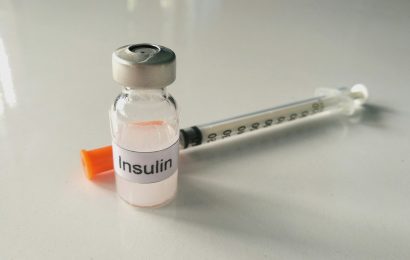Chances are you’ve tried a beverage or food that contains a “nonnutritive” sweetener. Nonnutritive sweeteners are substances that are used in place of sugar, including table sugar, honey, maple syrup, or corn syrup. Sometimes called artificial sweeteners or sugar substitutes, nonnutritive sweeteners are found in many products, such as foods, beverages, chewing gum, mouthwashes, toothpaste, and medicines. These sweeteners are extremely popular because they contain little, if any, calories and carbohydrate, making them a helpful choice for people who have diabetes and/or who are overweight. Because their sweetening ability is so intense, only small amounts of nonnutritive sweeteners need to be used to provide the same level of sweetness as nutritive, or caloric, sweeteners.
The Food and Drug Administration (FDA) has approved six nonnutritive sweeteners, which include aspartame, acesulfame-K, neotame, advantame, saccharin, and sucralose. (Certain extracts of the stevia plant and monk fruit also have “generally recognized as safe” status from the FDA.) Not surprisingly, perhaps, most of these sweeteners have raised a lot controversy and concern about their safety and possible effects on health. This week, we’ll take a closer look at one of the more popular and prevalent sweeteners, aspartame.
What is aspartame?
Better known as Equal or NutraSweet, aspartame is found in soft drinks, yogurt, gum and cereals. Discovered in 1965, aspartame is roughly 200 times sweeter than regular table sugar, or sucrose. It’s made up of two amino acids, aspartic acid and phenylalanine, which are naturally occurring amino acids. When aspartame is metabolized, or broken down in the body, it forms a small amount of methanol. Methanol formation is concerning to some people because large amounts can be harmful. However, the amount of methanol formed from aspartame breakdown is very low. Methanol, by the way, is also produced by the body and is found in fruit, fruit juices, some vegetables and certain fermented beverages.
What are the concerns about consuming aspartame?
Do a quick search on the Internet and you’ll find numerous citations and links to websites and articles claiming how harmful and dangerous aspartame is. Aspartame has been “accused” of causing a number of health problems, including:
• Methanol poisoning (headaches, ear buzzing, weakness, vertigo)
• Brain damage
• Multiple sclerosis
• Parkinson disease
• Memory loss
• Migraines
• Schizophrenia
• Brain tumors
This isn’t even a complete list of the possible problems caused by aspartame. It’s understandably concerning to think that a seemingly harmless sweetener could be linked to any of these health issues. However, as with anything related to health that you hear about or read about on the Internet, it’s important to separate fact from fiction and look at the real evidence behind any claim.
Aspartame is probably one of the most tested and studied substances. As a result of the extensive testing, aspartame is deemed safe to be used by almost everyone except for people who are born with a rare genetic disorder called phenylketonuria (PKU). Health authorities, including the FDA, the joint FAO/WHO Expert Committee on Food Additives (JECFA), and the European Food Safety Authority (EFSA) have reviewed the studies on aspartame and have declared it safe to use.
On the other hand, other health experts and consumer groups, including the well-known group Center for Science in the Public Interest (CSPI) aren’t so sure about aspartame’s safety. CSPI points out three studies linking aspartame intake with leukemia, lymphoma, and kidney and other cancers in rats and mice, although these were not well-done studies. On the other hand, the National Cancer Institute looked at cancer rates of more than 500,000 people and of those who drank aspartame-containing beverages, they did not have higher rates of any type of cancer compared to those who didn’t drink them.
Cancer concerns aside, CSPI also believes that aspartame can cause headaches in small number of people (although they do debunk most of the information about this sweetener that’s found on the Internet). CSPI recommends that people avoid using aspartame and has even asked the singer Taylor Swift to end (“shake off”) her endorsement of Diet Coke.
How much aspartame is safe to use?
The FDA sets safe levels of all sweeteners, called the Acceptable Daily Intake, or ADI. The ADI for aspartame is 50 milligrams per kilogram of body weight. For example, a 150-pound adult could safely consume up to 3,500 milligrams of aspartame each day. A 12-ounce can of Diet Coke contains 185 milligrams of aspartame; given that, a 150-pound adult would need to drink about 19 cans each day to reach the ADI level.
The decision to use aspartame (or any sweetener, for that matter) is yours to make. Some people feel more comfortable using a more “natural” type of nonnutritive sweetener, such as stevia. Other people avoid nonnutritive sweeteners altogether and either use a little bit of “real” sugar or nothing at all. If you have concerns about aspartame, talk with your doctor or dietitian to determine what’s best for you.
Have diabetes and difficulty sleeping? Then bookmark DiabetesSelfManagement.com and tune in tomorrow to learn about some foods you may want to avoid from Type 2 veteran Martha Zimmer!





